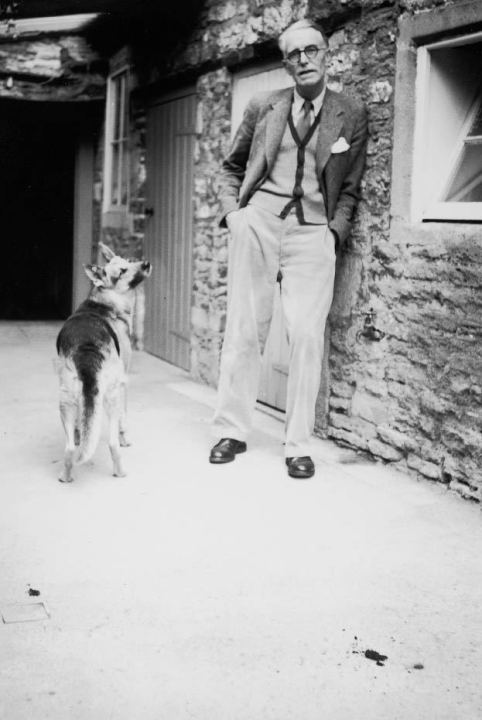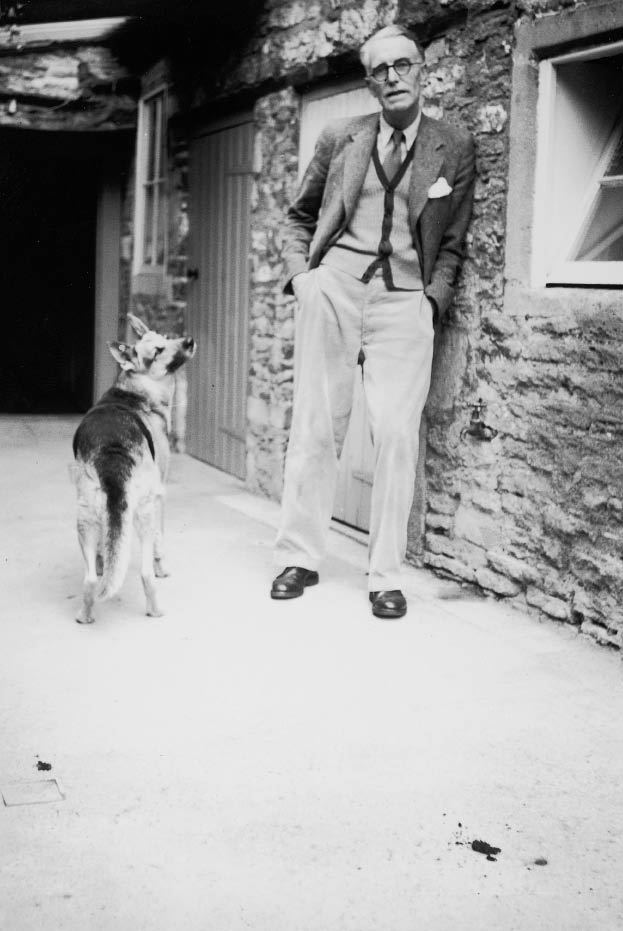I declare two interests. I own a dog, Lily, and I admire the New York Review of Books. What could go wrong? Especially because, according to the enthusiastic introduction, back in 1999, by Elizabeth Marshall Thomas, My Dog Tulip won golden opinions from its first publication in 1956, notably from Julian Huxley and E. M. Forster. (I must say I saw Forster almost daily in 1954—1955 during his short walks at Kings College, Cambridge and he didn’t have a dog.) As Thomas wrote, here is the memoir of an unremarkable, badly behaved dog that adored her master, who loved her in return.
A ‘man of letters’, as they used to say, and a bachelor, Ackerley was a veteran of the Great War, scornful of women, with a timid maiden cousin with whom he sometimes stayed. Friendless, at least in this book, he visited local pubs and nodded to people he met.
When she was 18 months old, Ackerley acquired Tulip, a beautiful young Alsatian bitch from a previous uncaring owner, we are led to believe, and they settled down in his flat near the river in London. Like most first-time dog owners he is like a first-time parent, endlessly worrying and fidgeting about Tulip’s behaviour and health — is she normal, what is normal, is she seriously ill? She panics whenever she is taken for a check-up or treatment, until they visit a sensible woman vet who tells Ackerley:
‘Tulip’s a good girl. I saw that at once. You’re the trouble.’
‘Do tell me.’
‘Well, she’s in love with you, that’s obvious. And so life is full of worries for her. That’s why she’s so upset when people approach you.’
This is all pleasant enough, and one settles down to read about a man and his dog. But the Tulip story soon becomes tiresome, then exasperating, and finally pointless when Ackerley admits, ‘Situated as I am, I see that I should never have taken her at all.’
I fear that dog-less readers who might have contemplated living with a dog will now abandon the thought. Don’t. The problem, as the vet said to Ackerley, is Ackerley. Just don’t be like him. As in the case of all dogs, until they are trained — training never seems to have occurred to Ackerley — Tulip, as the Americans say, tends to ‘go to the bathroom’ whenever she feels like it. Sometimes she does this in other people’s houses or shops, from which Ackerley is soon banned. Before getting on a train, Ackerley speaks to her like this: ‘Come on, Tulip, be a sport. Shitsy-witsy, you know.’ Can Huxley and Forster have giggled over that? He rarely picks up after Tulip, and finds it irritating when people complain. Once, when she fouls the pavement outside a greengrocer’s, he starts to flee; they are furious. Ackerley supposes that Tulip’s gift will not ‘uplift their hearts’.
Maybe readers in 1956 found this deliciously twee. He gets cleaning materials from the ‘horrid’ greengrocer and wipes up after Tulip. He says to the wife: ‘You could say thank you. ‘ ‘Why should I?,’ she understandably asks. Ackerley is tempted to drop the entire mess back on the pavement, but doesn’t. Bachelor-curmudgeon that he is, he quails: ‘Women are dangerous, especially women of the working class. It is always a mistake to ruffle them. They stop at nothing and they never let go.’
Then there is dog-sex. To say there is too much information here — bleeding, discharges, smells, several failures to mate, one successful mating, fingers up vaginas — is hugely to understate it. Like many bitches, Tulip goes into heat three times a year for a couple of weeks at a time. At first this is mildly interesting. When Tulip is ‘ready’, all the dogs (dog-owner’s speak for male dogs) within smell cluster near her, chase her, try to mount her and so on, as is well-known to anyone with the smallest knowledge of dogs. Tulip finally succumbs, and for the only time in her life has a large litter which Ackerley —and this is well described — finds fascinating and touching.
This problem of dog sex and Ackerley’s preoccupation with it goes on for years. Ackerley, who fears Tulip won’t survive the operation, dithers over spaying (or what he primly calls a ‘hysterectomy’). When Tulip is 14 and seriously ill, he finally agrees to one, and she lives until she is 16, ‘a great age,’ as he rightly says. After all that detail about Tulip’s hind end, together with a lot about vulgar working-class behaviour, Ackerley fails to tell us what life was like for him after Tulip died.
One of Ackerley’s final non-insights is this:
I realised what strained and anxious lives dogs must lead, so emotionally involved in the world of men . . . stupidly loved, stupidly hated, acquired without thought, reared and ruled without understanding.
Some dogs. Like some children.
An animated film of My Dog Tulip, voiced by Christopher Plummer, the late Lynn Redgrave and Isabella Rossellini, will go on general release in the UK next month.







Comments